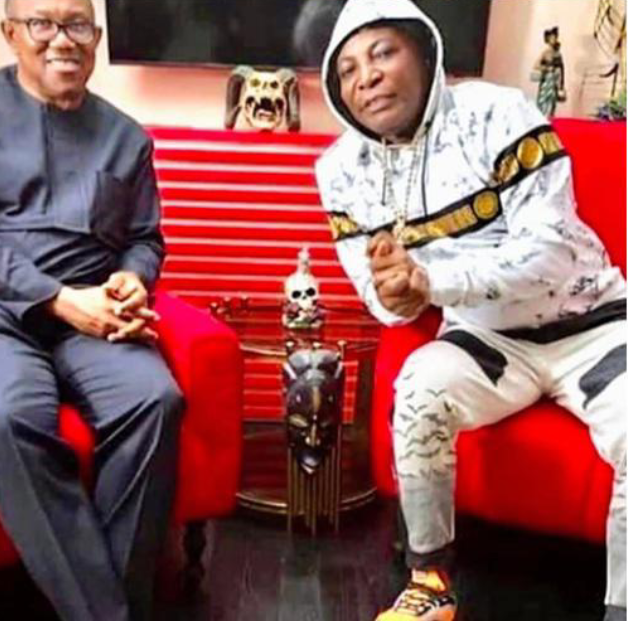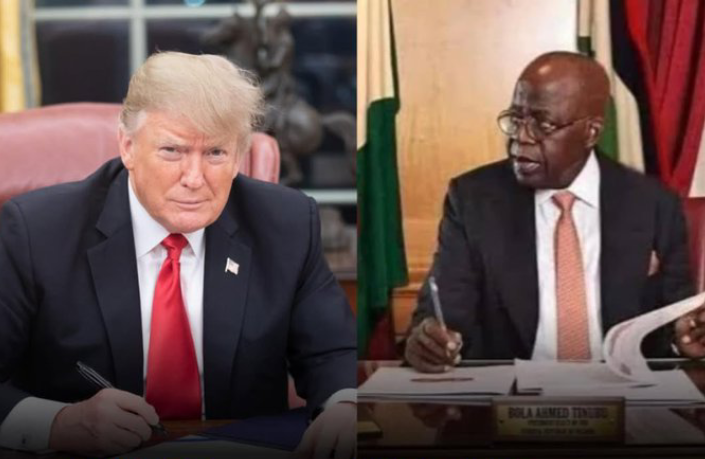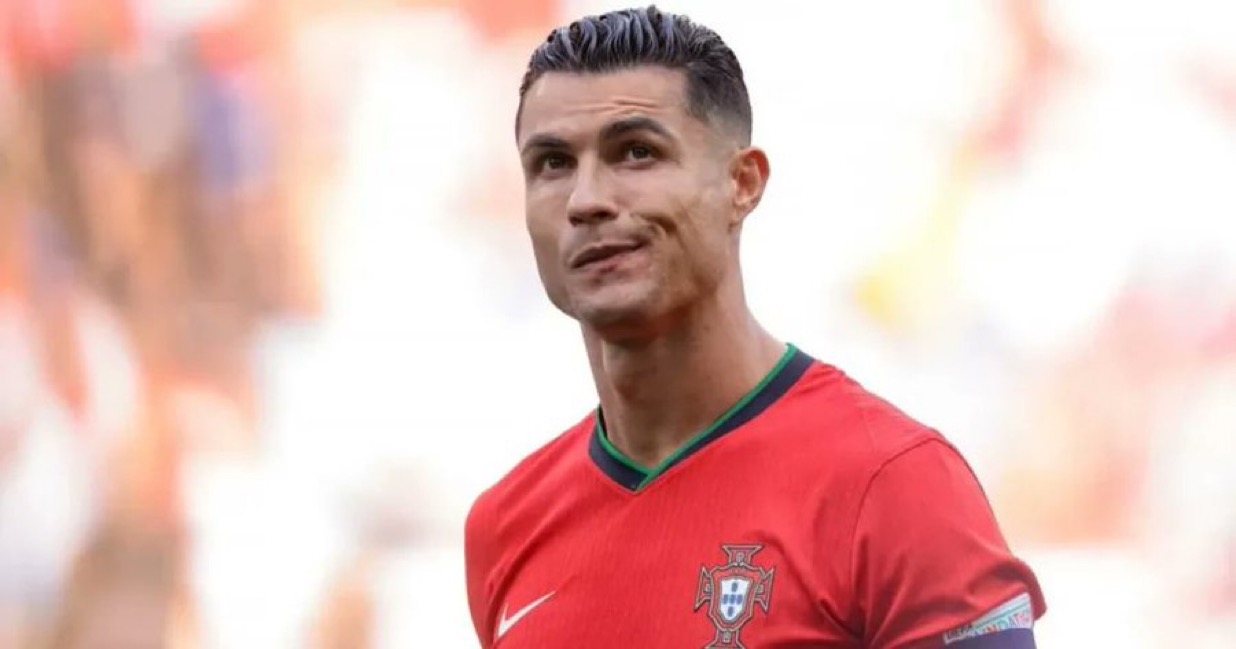
CharlyBoy Recounts the Day Peter Obi Surprised Him With a Ghana Must Go Bag That Left Him Laughing on the Floor

Veteran entertainer and activist Charles Oputa, popularly known as CharlyBoy, has shared a heartwarming and somewhat hilarious story of how Labour Party’s presidential candidate in the 2023 elections, Peter Obi, once surprised him at his home with what he described as a Ghana Must Go bag filled not with money, but with items that spoke volumes about Obi’s character, humility, and native intelligence. The story, narrated in CharlyBoy’s typical witty and down-to-earth style, has been making waves online and sparking conversations about the personality of the man many Nigerians fondly call “Okwute.”
According to CharlyBoy, the incident happened on a rather unusual day. At about 1 a.m., he received a call from Peter Obi, who politely asked if he could come over to see him early in the morning, around 5:30 or 6 a.m. CharlyBoy, who was taken aback by the timing, jokingly complained that Obi was about to interrupt his early morning exercise routine and his scooter rides. But as someone who has always admired Obi’s discipline and integrity, he quickly agreed, saying “Anything for my Presido.”
True to his word, Obi arrived at 5:55 a.m. sharp. No African time, no delay, no excuses. CharlyBoy stressed that this punctuality already set the tone for what he has always believed about Obi—that he is a man of his words and one who values time. But what truly caught his attention was not Obi’s arrival, but the sight that greeted him when he came downstairs to welcome his guest. Right at the entrance of his sitting room was a large Ghana Must Go bag, and CharlyBoy admitted that his mind began to wonder what exactly could be inside.
The two men sat down to chat for almost two hours, discussing Nigeria, politics, and family matters, with Obi maintaining his usual calm and engaging demeanor. By the end of their conversation, Obi pointed to the Ghana Must Go bag and said, “See small thing I bring for you.” CharlyBoy, without bothering to open it immediately, simply thanked him. But when Obi left and curiosity got the better of him, he decided to peep inside, and what he found was so unexpected that he burst into uncontrollable laughter.
Inside the bag were three bottles of roasted groundnuts, plenty of alligator pepper, kola nuts, pawpaw, oranges, agbalumo, mangoes, bananas, and other locally sourced fruits and items—all personally handpicked by Obi himself. For CharlyBoy, the simplicity and thoughtfulness of the gesture meant far more than any money could. He recalled how he immediately called Obi to thank him, and Obi responded by saying, “Senior, I no fit give you money, but I fit give you this one, na my hand pick.”
It was a moment that stayed with CharlyBoy, who described it as an example of native intelligence and authenticity. In his words, “Which kin native intelligence pass dis one? Dis Peter na Okute. But I love the bobo no be here.” He went on to say that sometimes in life, it is the little things that remind us that life does not always have to be hard. For him, the kola nut and bitter kola Obi gifted him brought more sweetness to his heart than money ever could.
The Areafada, known for his flamboyant personality and fearless opinions, admitted that this simple act of kindness filled his belly with laughter and gave him a story worth sharing with his fans. He even painted the picture of how, after Obi’s visit, he jumped on his scooter with the cool morning breeze slapping his face, reflecting on how sometimes, joy comes from the smallest and most unexpected places.
This story has since resonated with many Nigerians who see it as a reflection of Obi’s true character—modest, relatable, and deeply connected to the ordinary Nigerian way of life. In a society where political figures are often associated with lavish displays of wealth and detachment from the common man, Obi’s gesture of delivering fruits and traditional items in a Ghana Must Go bag instead of cash has sparked renewed admiration.
For supporters of Obi, this anecdote has further reinforced the image of a man who does not seek to impress with ostentation but prefers to connect with people through simplicity, discipline, and authenticity. For critics, it is yet another reminder of the unconventional nature of Obi’s politics and lifestyle, which continues to stand out in Nigeria’s political space.
CharlyBoy, in his narration, did not miss the opportunity to inject humor into the tale, making his audience visualize his shock and eventual laughter when he opened the bag. His storytelling style, infused with colloquial expressions like “na so,” “I just no know when I fall for ground begin laugh,” and “make una no vex, life no suppose too serious,” gave the entire account a lively and relatable feel. It was not just about Obi’s gesture but also about how the veteran entertainer received it—with gratitude, humor, and reflection.
The story also reveals a softer side to both men—Obi, often seen as the serious, calculating politician with a reputation for frugality, and CharlyBoy, usually the bold, eccentric rebel-figure in Nigerian pop culture. In this simple exchange, both men are seen laughing, sharing, and enjoying the little things that make life worthwhile.
Beyond the laughter and humor, CharlyBoy’s message carried a subtle lesson about perspective. He reminded his audience that life should not always be taken too seriously and that sometimes, joy is found not in wealth or material possessions but in thoughtful gestures and genuine human connections. He concluded his narration by telling his followers, “At least this one give me story wey sweet una join. I can see you smiling. Happy weekend.”
For many Nigerians struggling with the harsh realities of economic challenges, insecurity, and political frustrations, this story served as a refreshing reminder that there are still leaders who embody humility and sincerity, and still citizens who can appreciate the beauty of simple, heartfelt gestures.
CharlyBoy’s recount of Peter Obi’s visit is more than just a personal anecdote; it is a cultural snapshot of the values of respect, generosity, and humility that many feel are fading in today’s world. It is also a reflection of the growing admiration Obi commands, not only as a politician but as a person who lives by example.
And in the end, perhaps the biggest takeaway from the story is not just what was inside the Ghana Must Go bag, but what it represented—the idea that true wealth is not in how much you give, but in the thoughtfulness behind the giving. For CharlyBoy, it was not the fruits and nuts that mattered, but the laughter, joy, and meaning that came with them. And for Nigerians, it was yet another reminder of why Peter Obi remains a man who continues to inspire loyalty, admiration, and even love from people across different walks of life.


